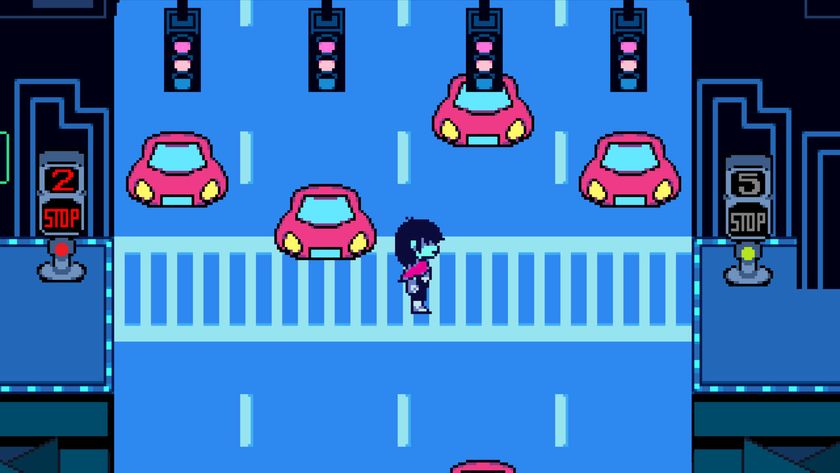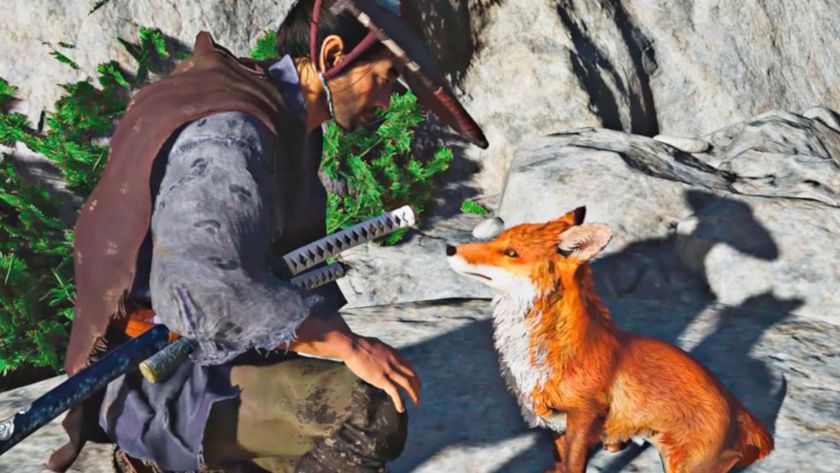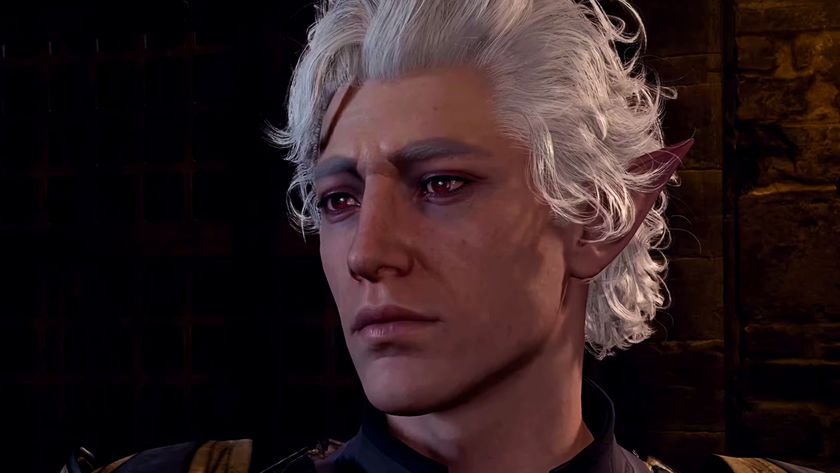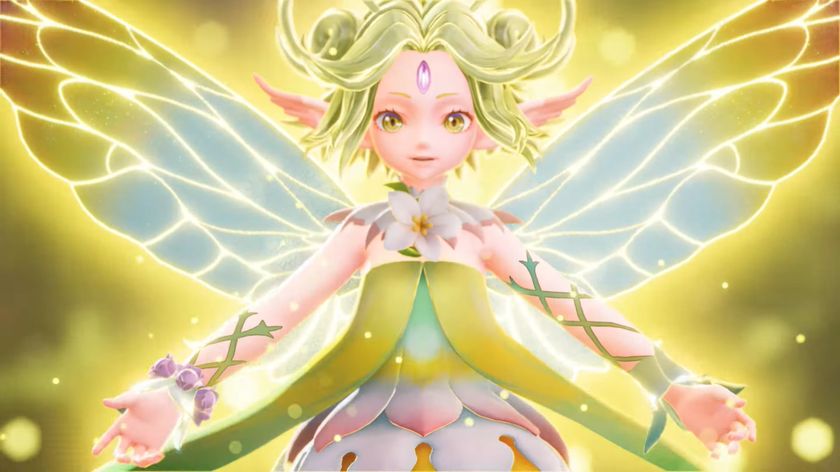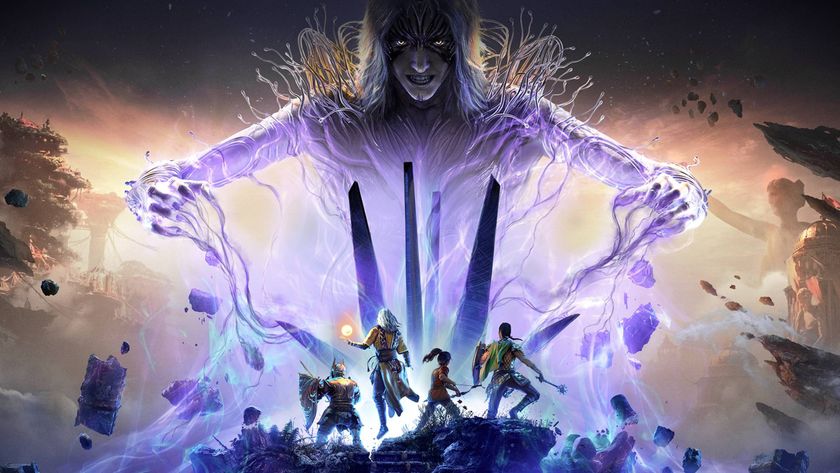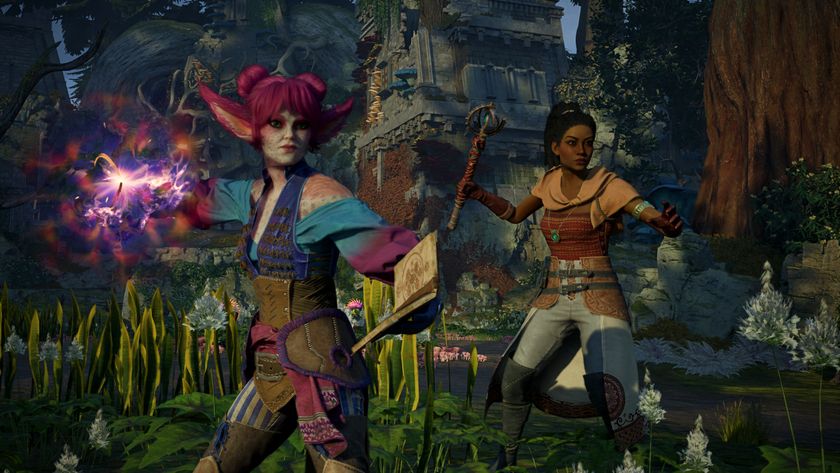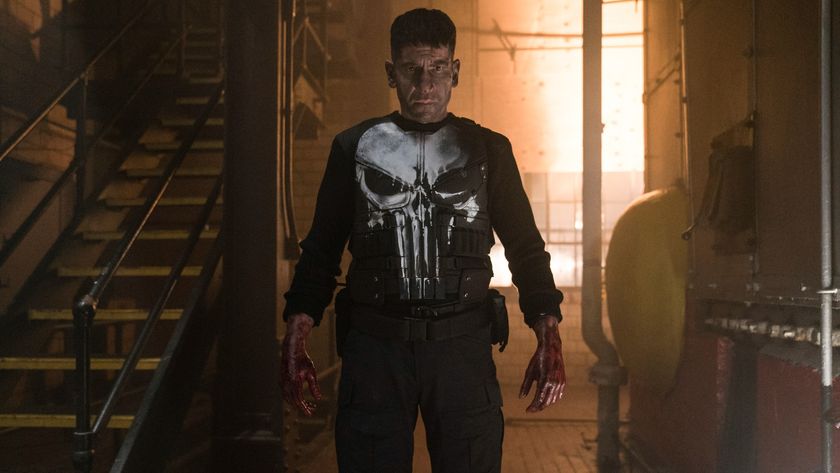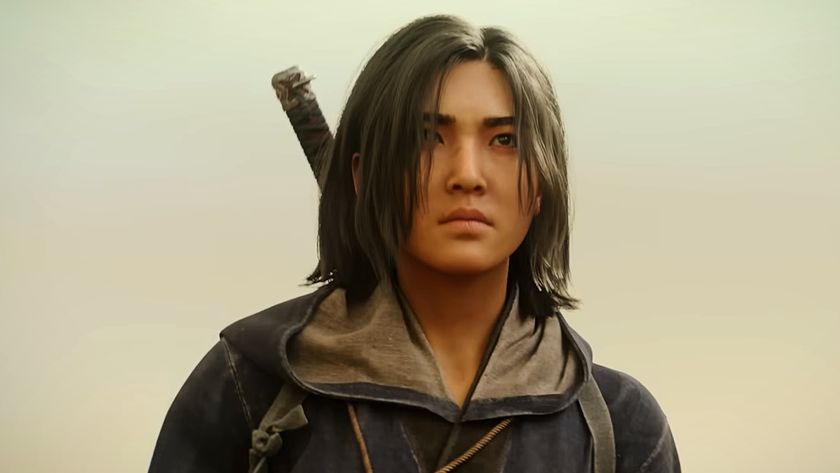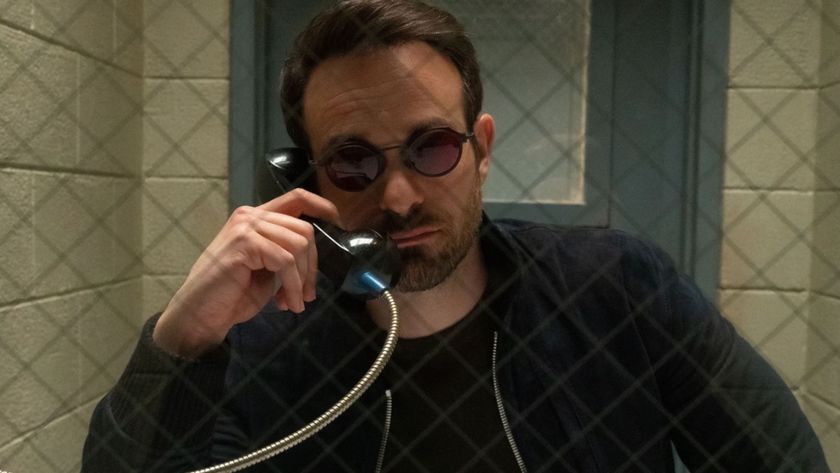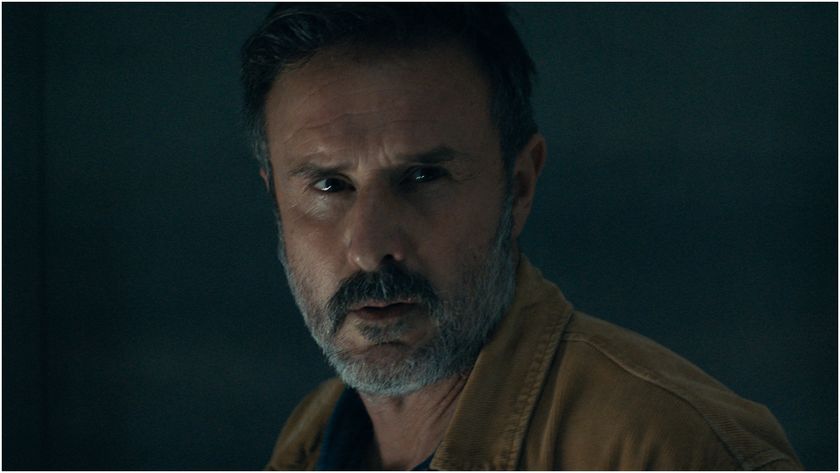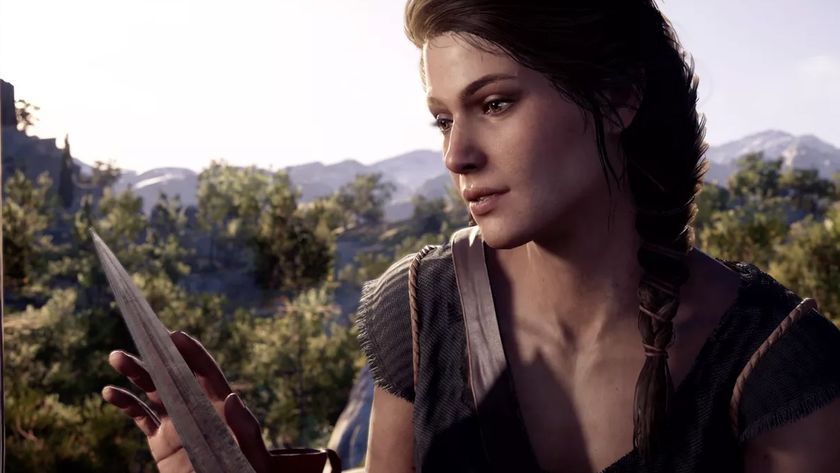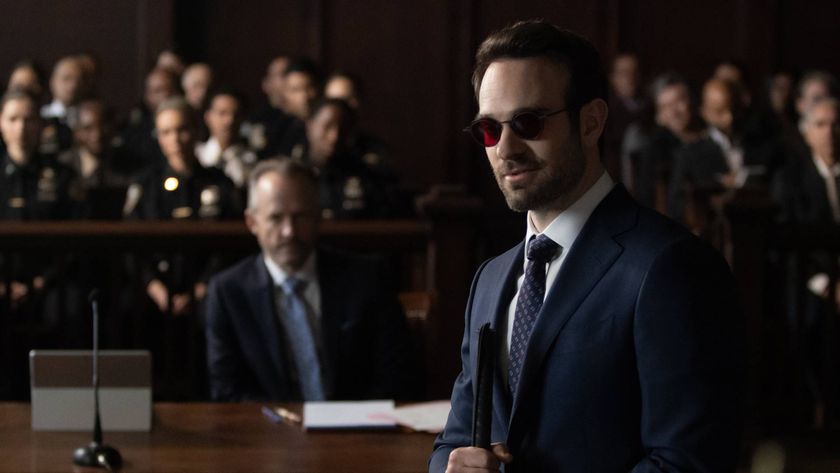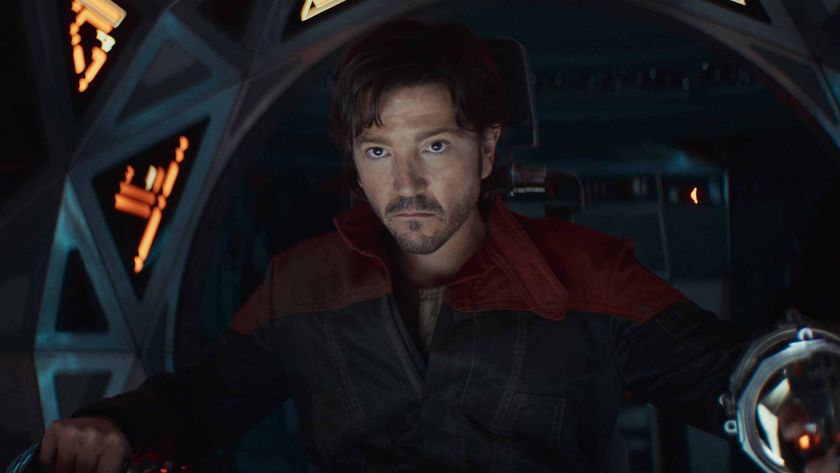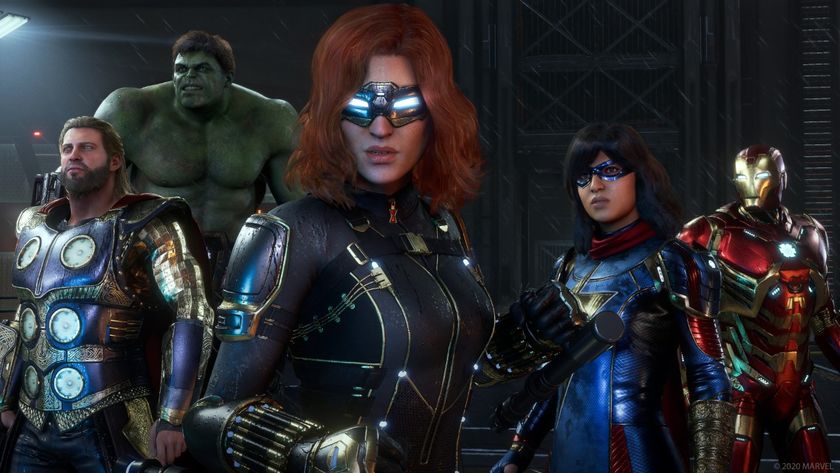Why Nintendo Switch's big summer game Octopath Traveler is a love letter to classic 16-bit RPGs
"We took all the good things from all the games we used to play when we were younger"
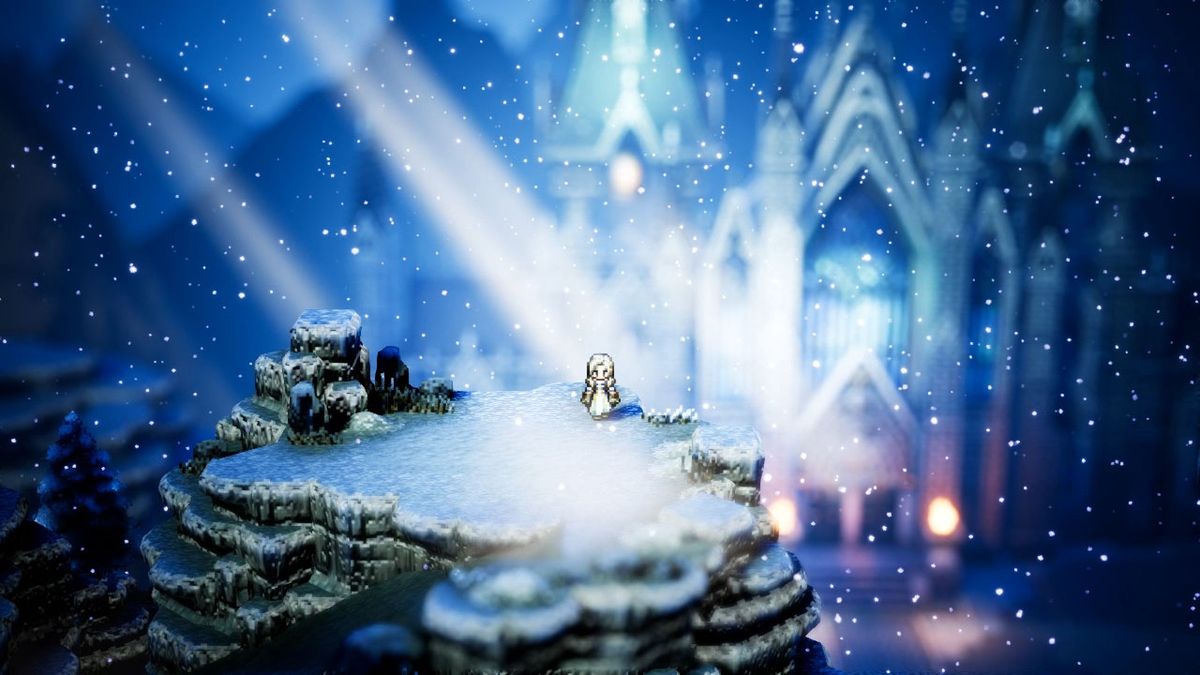
Nintendo Switch's big summer game Octopath Traveler, with its eight heroes and distinctive retro style, will be a welcome sight for anyone who did their early RPG questing in the days of Final Fantasy 6 and the SaGa series, but the game needs to appeal to a modern audience too. GamesRadar+ sat down with producer Masashi Takahashi and director Keisuke Miyauchi from Square Enix to find out more about the game’s inspirations, how they plan to win over fans of modern RPGs like Skyrim who are less familiar with JRPG tradition, and why you won't have to grind for glory.
- What do critics think of Nintendo's big summer game? Read our Octopath Traveler review round up
Why did you release two Octopath Traveler demos?
Because it’s a game that uses pixel art, it’s really difficult to just look at a screenshot and get a sense of how the game plays. I’d like to have players hold it in their hands. I feel like it's easier for them to get a sense of how it plays after that. That's why we release demos. The reason we released the first demo so early in the development process [The first demo was released on Sep 13, 2017, nine months after the game was announced, with a second demo following on June 14, 2018] was so we could receive feedback from the fans and apply it, then let them know we’ve applied it.
What was the most surprising feedback?
I don’t know if it answers your question, but the most impressive thing to me was the number we received. Over 45,400 responses from all over the world. About 80-90% were positive, a lot were [about] the look of the game, the music, and then the game play.
"If you look at Octopath Traveler it has a very simple structure at its core, anyone can play this game"
How do you sell the game to a non-JRPG audience?
If you look at Octopath Traveler it has a very simple structure at its core and anyone can really play this game, that's how we made it. In addition to that they can take a look at the prologue demo where people can choose any of the eight characters from the game, and they can carry over their progress to the full game.
What are the game’s inspirations?
I was born in 1985, and my colleague was born in 1984, and as we were growing up that represented the golden age of the Super Famicom [known in the US as the Super Nintendo Entertainment System]. We were playing all kinds of games like Final Fantasy, the Mana series, so we’ve essentially grown up and become developers and we're making games that use the things that we liked about those type of games we were playing when we were younger. It’s not that we have a specific series as inspiration but we took all the good things from all the games we used to play when we were younger.
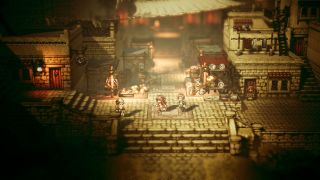
How have you evolved the classic JRPG formula to reflect modern tech?
As far as recent tech in graphics, look at the game's use of water and light effects. We used Unreal Engine 4, and we looked at recent games to see how to best apply them. As far as specific games, Final Fantasy 15, one of our company’s games, we looked at that while it was still in development, and the use of the fire effect in the game was really talked about within the company. When you used magic the fire would shine a light that would reflect on the monsters and so that's one of the things we implemented.
"So there's a cleric in this game named Ophilia, and I'd like to be able to use her ability that's called 'Guide'"
What does having eight playable characters allow you to do?
One thing is the path actions. That allows for each of the characters in the cast to have an original action that they're able to perform with the townspeople. Normally, in other games, you're only able to talk to the townspeople but in this each of the eight characters has their own way of interacting. For example you can lead them around, or challenge them.
Sign up to the GamesRadar+ Newsletter
Weekly digests, tales from the communities you love, and more
What's your personal favorite of those path abilities?
So there's a cleric in this game named Ophilia, and I'd like to be able to use her ability that's called 'Guide.' Since I'm a director, it's really useful to be able to guide people around. [Laughs]
I'd like to able to use 'Scrutinize,' since it allows you to learn the background information of a lot of different people.
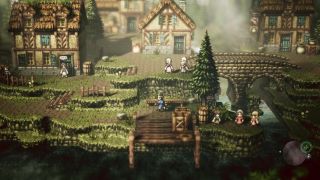
What are you feelings on grinding in RPGS, and how does Octopath Traveler deal with it?
As far as grinding goes we've designed this game with balanced levels, so the plan for how the game path works is that you go into town, you go shopping, you go through the field, you go into the dungeon, you beat the boss. By doing those things, you're generally at a level high enough so that you can get to the next part of the game.
But I believe that each player has a different play style and a different approach to this kind of thing. As a player I love to grind and level up a lot, so that I'm over-leveled for bosses, but there are also players who like to have really close, exhilarating fights with those bosses. We really need to allow for both styles to be possible and leave it up to the player.
"As a player I love to grind and level up a lot, so that I'm over-leveled for bosses"
Will the game have multiple endings? And how long will it take players to finish it?
As far as the main story is concerned, there are eight characters in this game and each of them has their own story. There are also sub-stories that are scattered throughout the game.
For people who just want to go through the general main stories in the game it generally takes around 50 to 60 hours. We found that for people who want to go through all the sub-stories, and go through the side dungeons as well, that you're looking at something that's 80 hours to 100 hours to complete.
Any advice for players who are more used to RPGs like Skyrim?
This is just what I think personally - and I should mention that I love Skyrim too - is that the basics of the game experience are the same, no matter what the game. You occupy the viewpoint of another character, you role-play as another character, and you have your own experience and you find your own ending. Although the visuals may be different, at its core the game is the same in that way.
Octopath Traveler is out now on Nintendo Switch.

Rachel Weber is the former US Managing Editor of GamesRadar+ and lives in Brooklyn, New York. She joined GamesRadar+ in 2017, revitalizing the news coverage and building new processes and strategies for the US team.
